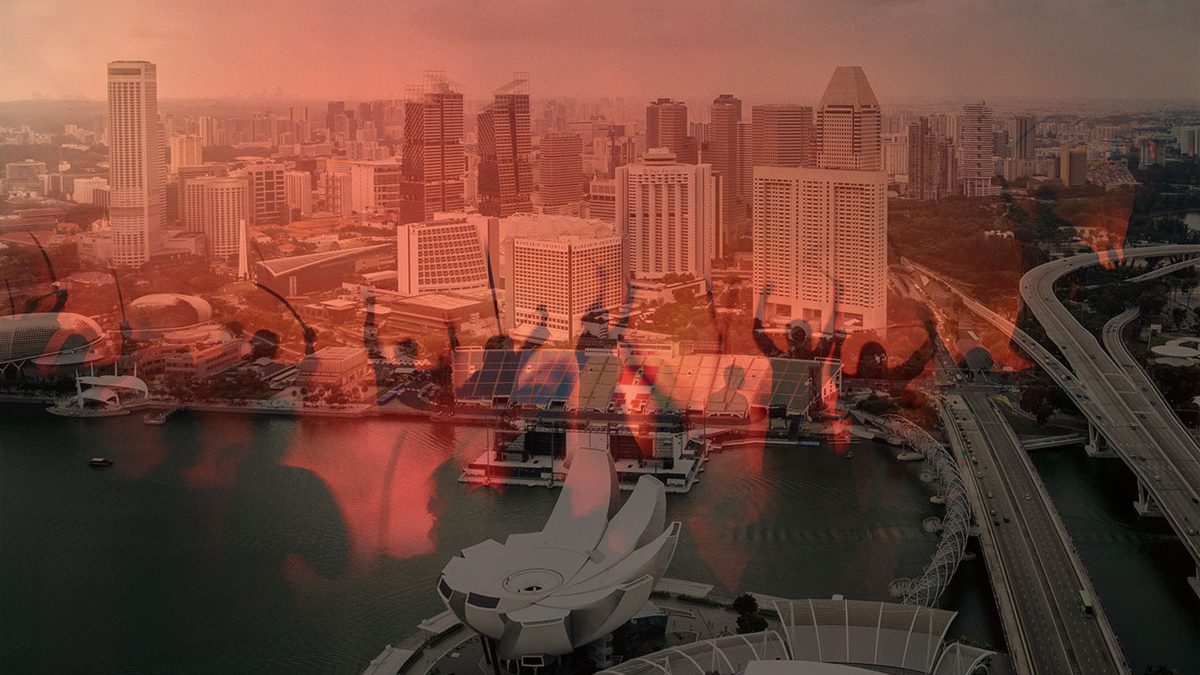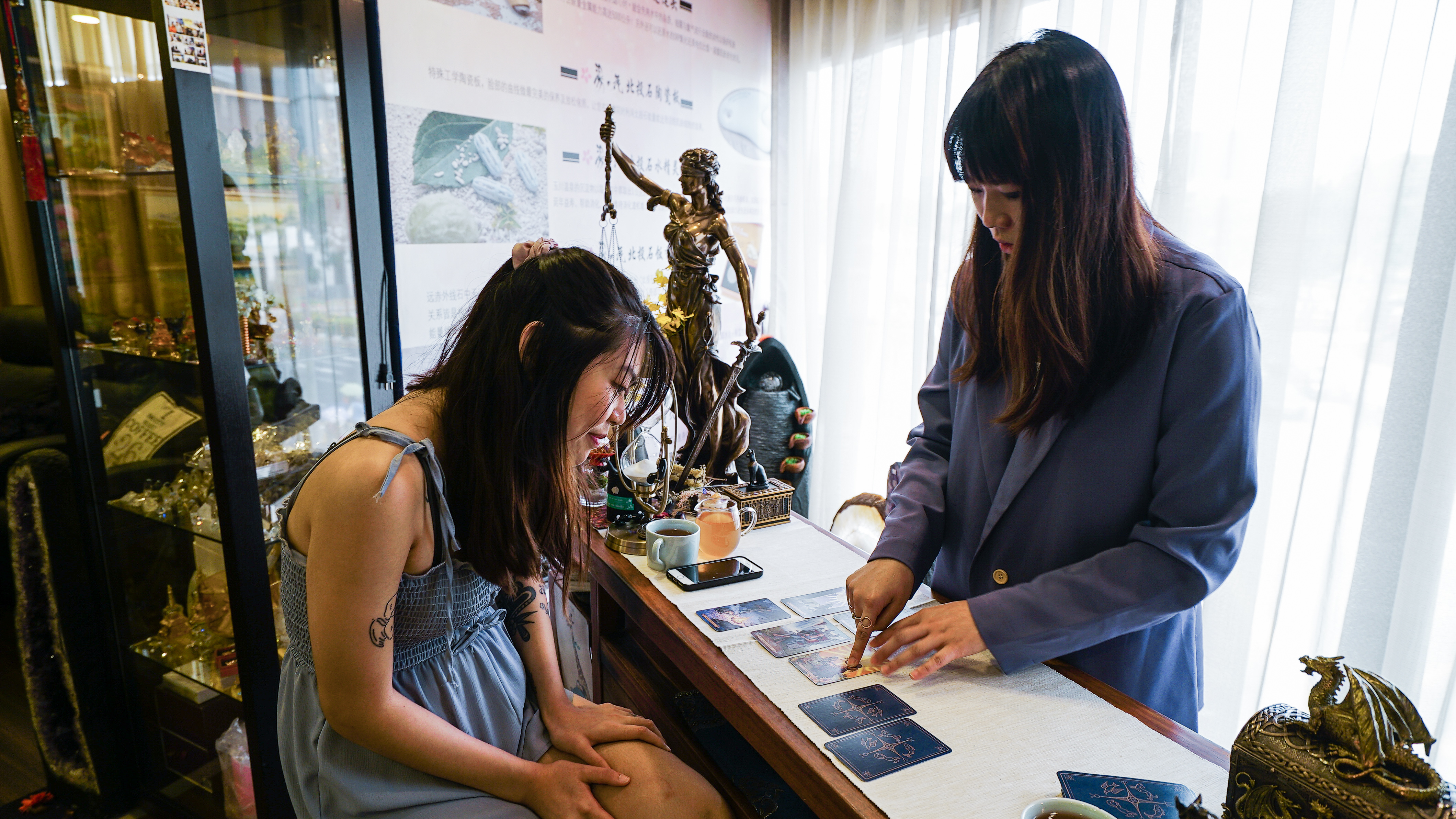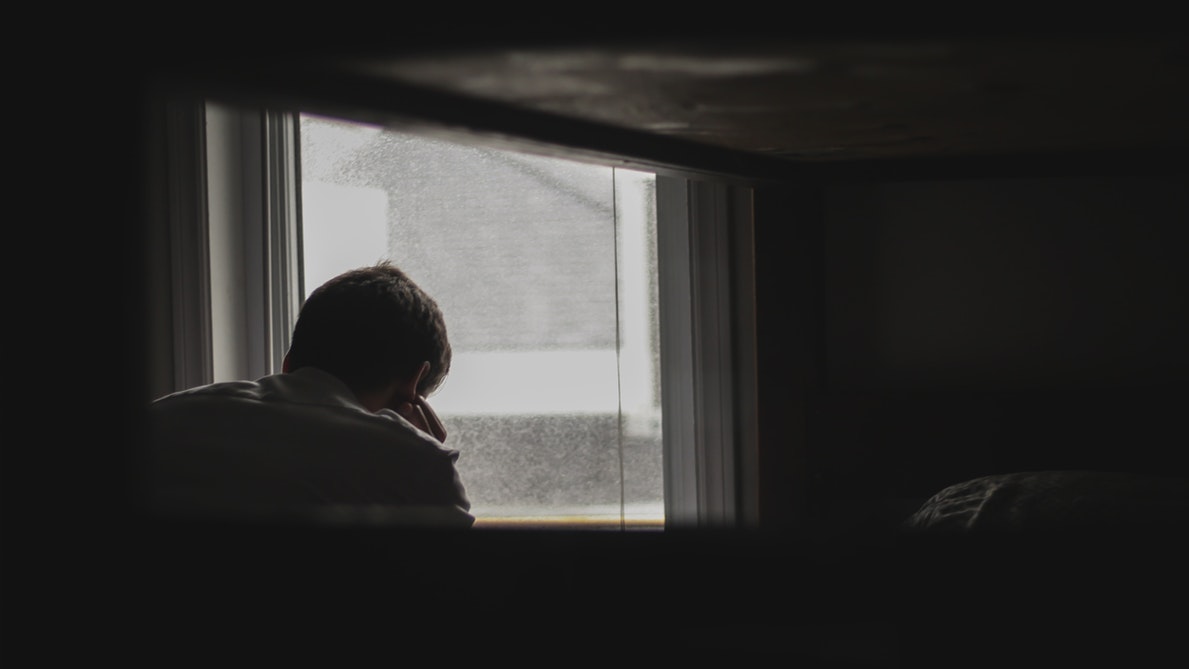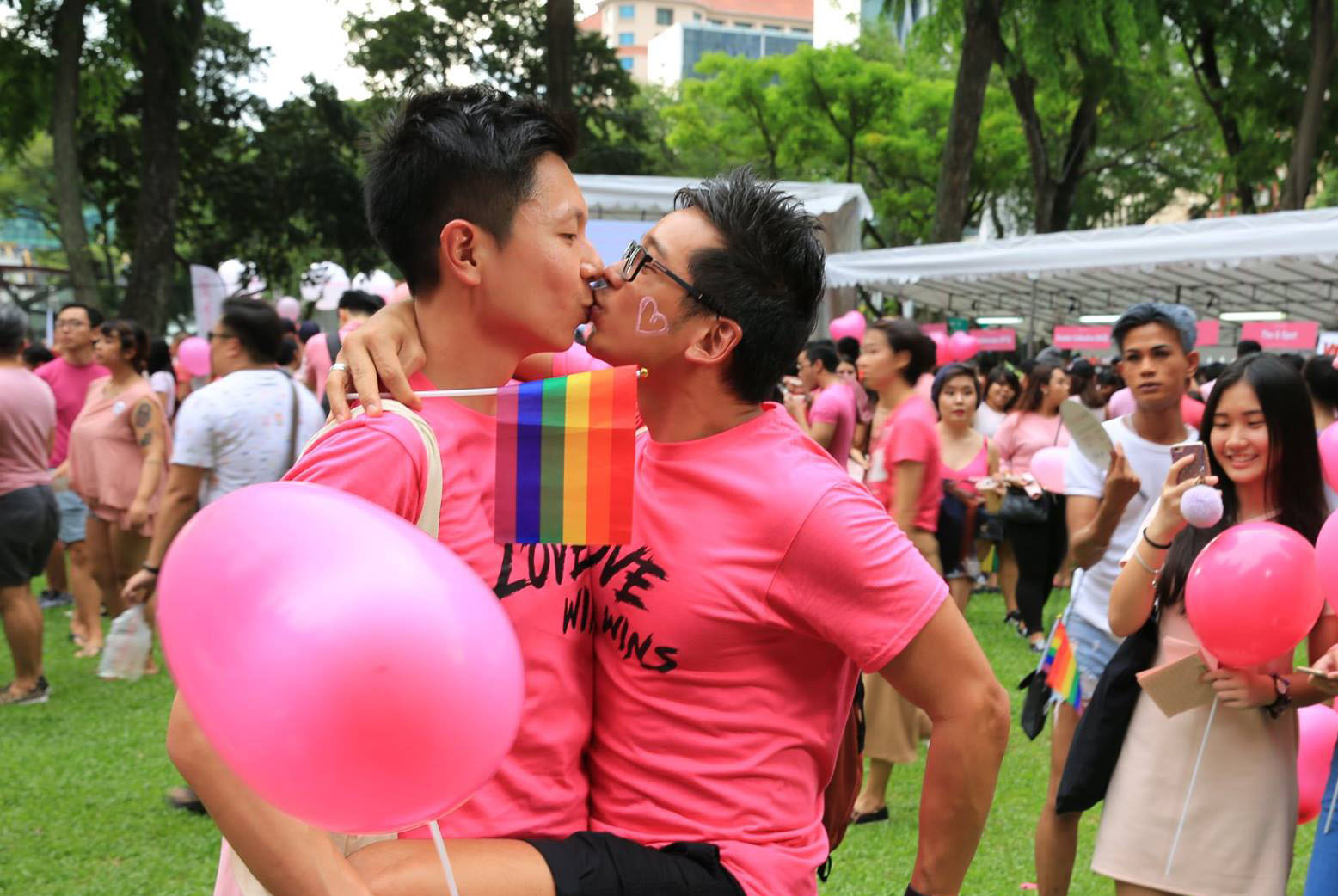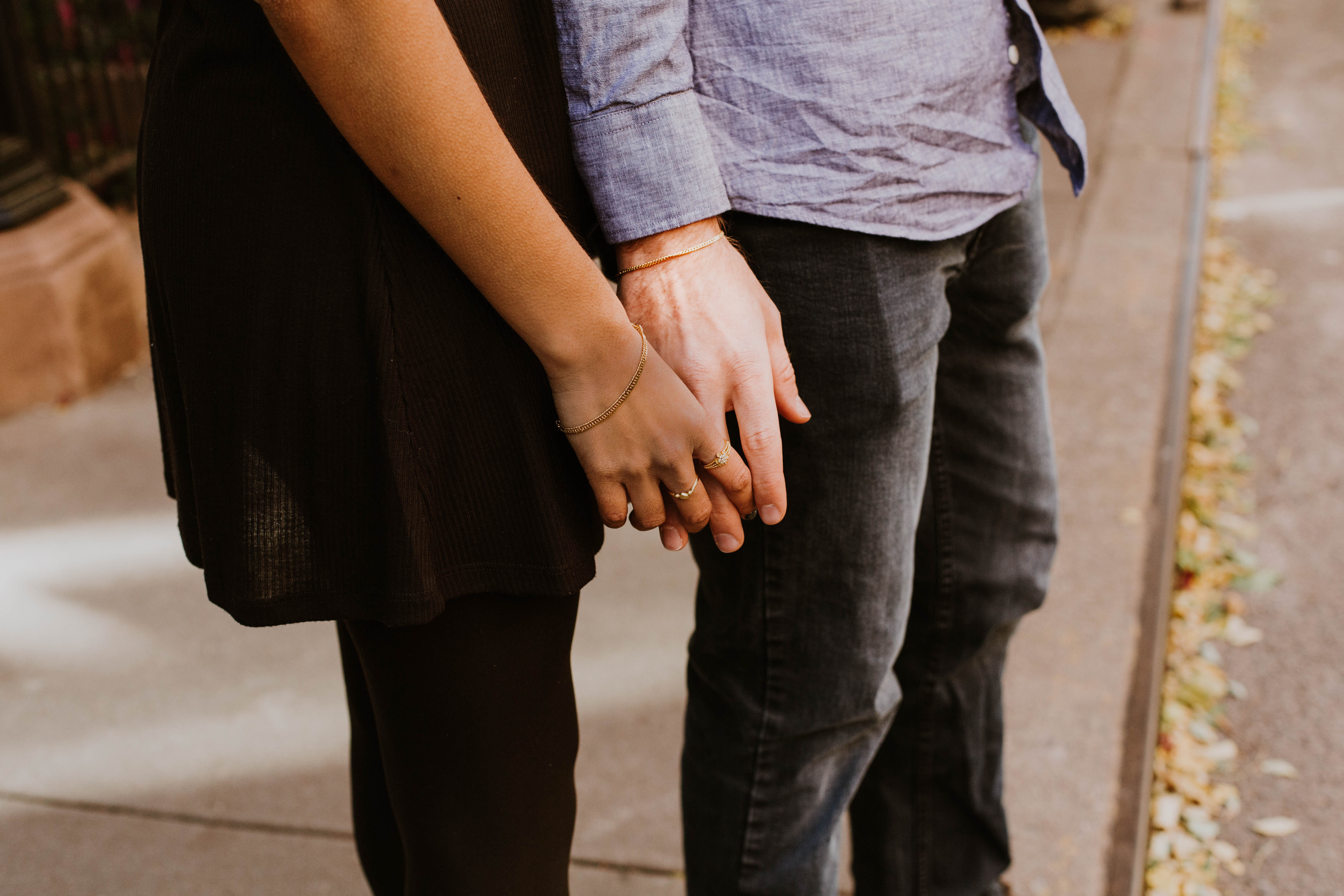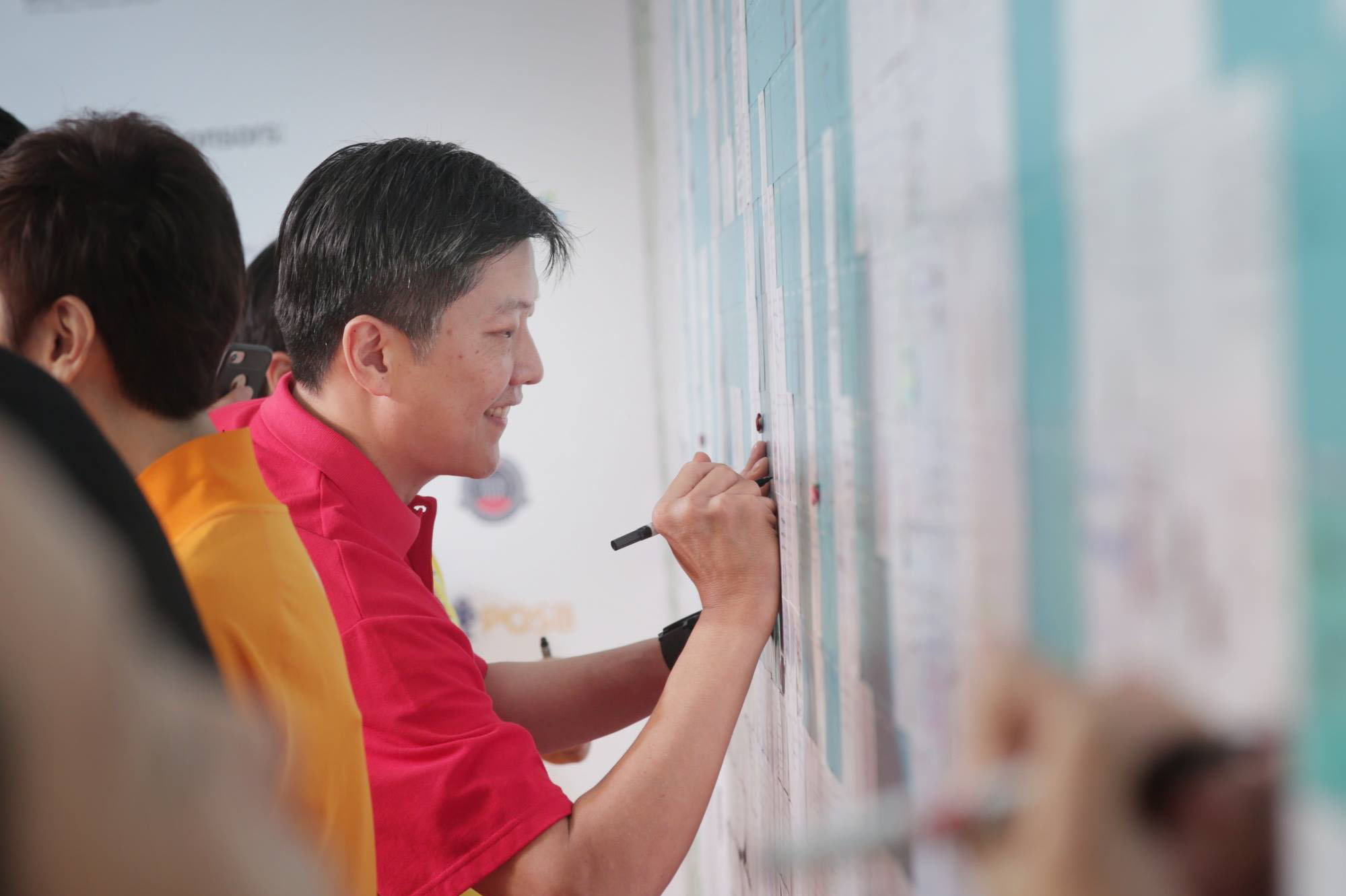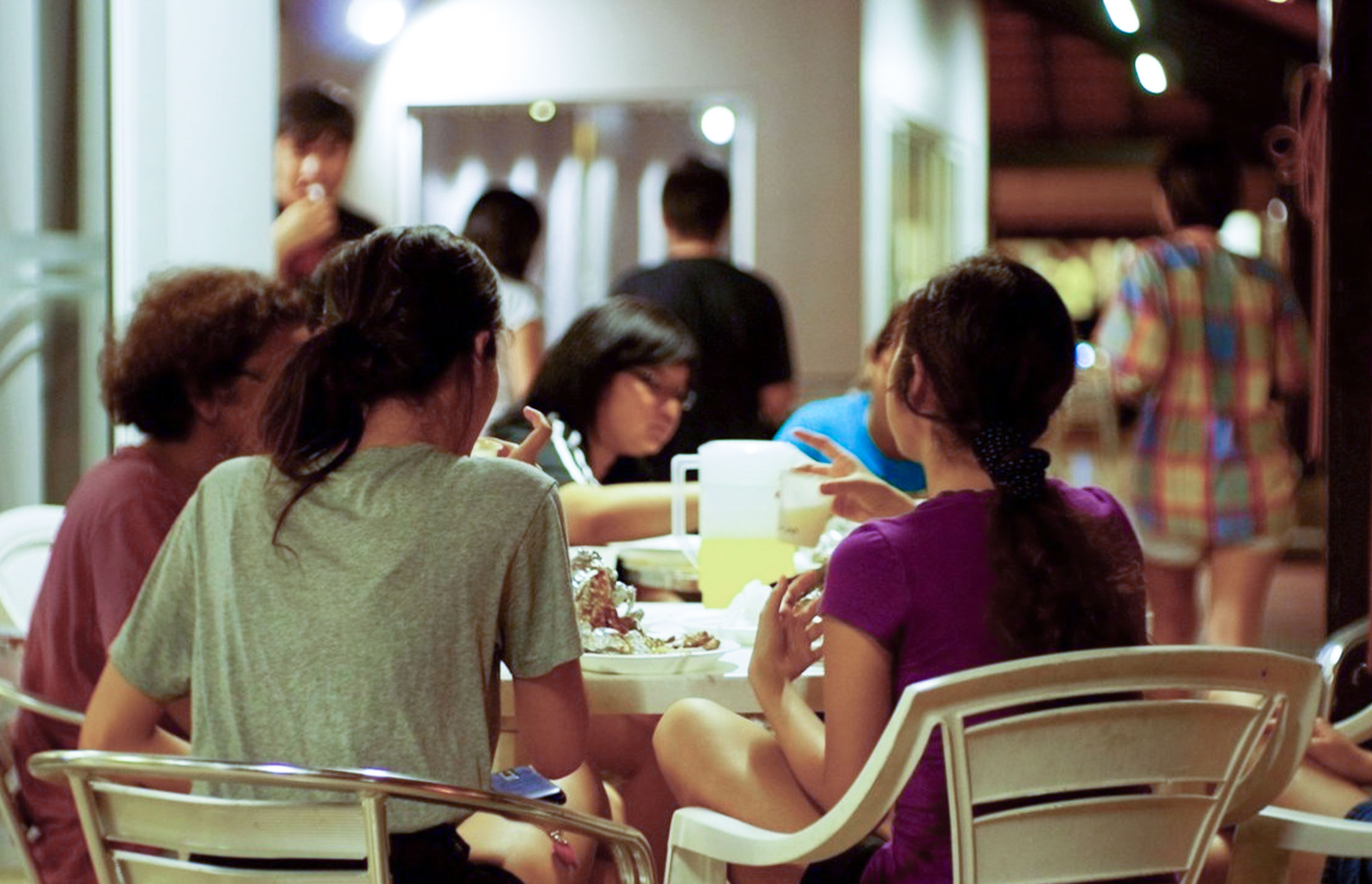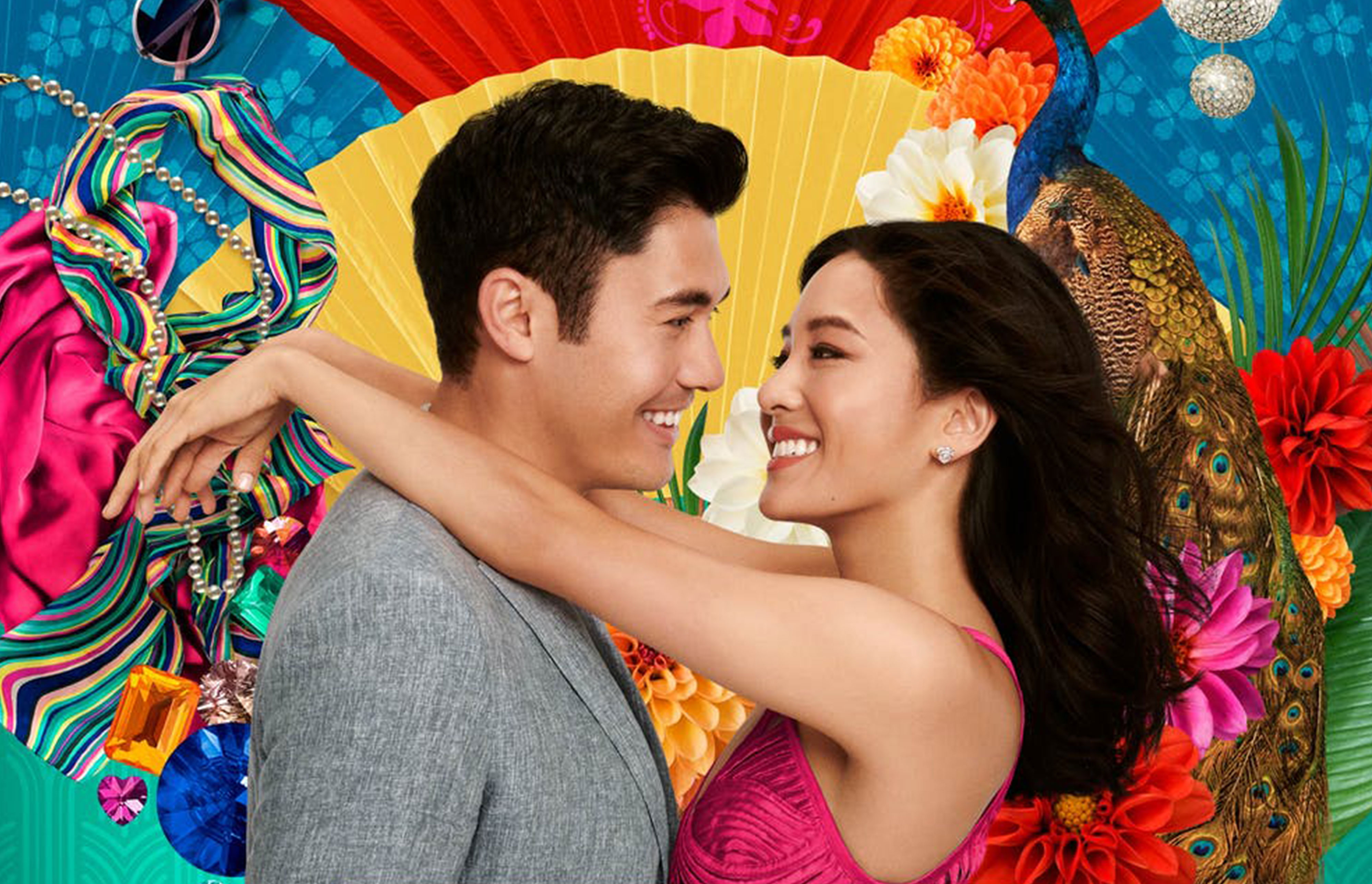On the 9th of June, more than a million people (according to organisers) took to the streets of Hong Kong to protest against an extradition bill.
Since then, things have been escalating and for the majority of us who have kept up with the episodes of violence and drama that have been plaguing Hong Kong, we’re concerned for the people there. But beyond the superficial worrying, we should also take a moment to consider:
What if this happens in Singapore?
What if, for whatever reason, one million unhappy Singaporeans were to take to Orchard Road to protest?
It’s hard to fathom something as extreme as this happening in Singapore, not just because of the safety, security, stability, and structure that we are so accustomed to but also because of the history of how strict our authorities have been on cases of unlawful assembly. Knowing this, it would have taken a major government f*** up for one fifth of our population to be riled up enough to execute a protest of this scale.
But that doesn't mean that it will never happen.
What If The Riots And Violence Were To Happen In Singapore?
Take the recent ‘brownface’ advertisement saga and a hypothetical scenario of our government enforcing a strict ruling against the Nair siblings for example. This could very well have provoked the minority groups in Singapore enough to fuel the start of a protest for the siblings to be cleared of charges. Subsequently, this could also be fodder for protestors to demand for more racial equality.
Imagine then, like what happened in Hong Kong, peaceful demonstrations along Orchard Road turn into violent riots with each new protest. Imagine going to town for a night out only to see barricades along the streets, and riot police patrolling wherever you go.
Usually, the presence of law enforcement officers would make us feel a bit safer, but this time, we won’t know if it’s actually going to be safer.
This time, they would be ready to do whatever it takes to establish control on the ground should a protest break out—even if that means innocent bystanders or peaceful protestors become collateral damage.
Imagine going home one night, only for the train to be intercepted by a group of masked men at Bishan (for example) who storm the train station with bamboo sticks, threatening protestors who happened to be in the same cabin.
Brandishing their weapons at everyone as tensions rise with heated exchanges, they would start hitting whoever weren’t on their side with their weapons. Everyone would try to flee the cabin. You run with them, but the masked men follow, hitting anyone and everyone they can reach while chasing after all of you.
Image Credit: Yahoo News
You’d get home in one piece that night, but with cuts and bruises.
You thank heavens that, at least, you’re alive, but you also fear for the days ahead, because this is neither an isolated incident nor the end of the chaos in the country.
The protests have already evolved into violent-prone riots all across Singapore. Private and public properties have been destroyed in the process.
Shops, trees, street signs and anything in the way of the protests would have been destroyed.
Lives would have been destroyed too, as people are injured or even killed in these riots.
Most significantly, trust in law enforcement personnel, the government, and your fellow countrymen has been eroded.
When All Of That Happens In Singapore, What Do We Even Do?
Do we wait for instructions? Who do we even take instructions from now that it the government we are protesting against?
Do we drop everything and seek shelter at home?
Perhaps schools will be suspended to keep the kids safe, but what about everyone else in the workforce?
Assuming that life still has to go on, how are our companies, business, or our shops going to deal with all the disruptions in the workforce and economy?
With the mounting unrest across our tiny island and the unpredictability of protestors, it would be impossible to know if it’s even safe to go anywhere. Can we put a standstill to our life at this point then?
Honestly, none of us will know what to do if it actually happens.
Sure, the SCDF has always been running free Community Emergency Preparedness Programmes. There are also the occasional emergency preparedness events to ‘prepare’ citizens for possible emergencies.
But having attended some of these events before, I can testify that all the attendees are a lot more fascinated at the action and special effects (smoke and fire) than the critical messages of what one should do in emergency situations.
I say this because these are also the only things I remembered from the events.
Image Credit: Safra
Call me a sceptic, but even if we were to witness this simulation again today, I doubt we would have learnt how to handle such situations as a civilian besides waiting for instructions.
Will We Be Ready To Make Difficult Choices?
Amidst all the mess and uncertainty, most of us would have probably just rode it out, hoping that somehow, somewhere, someone will step out to help us end the mess.
It is only our men (or women) in uniform who have been trained, in one way or another, to maintain law and order here. And for the most part, the rest of us would also put that same onus on them.
Imagine then, in the case where a fifth of the country is protesting to fight for something that our people must have felt extremely passionate and adamant about, there are also Singaporeanswho would be activated by the state to maintain law and order across the island.
In the case where the clashes become increasingly violent, these Singaporeans, who are also our loved ones, would be the ones who are required to follow the protocol to quell the riots: To fire tear gas and rubber bullets at fellow Singaporeans, and to possibly use violence against us if it really comes to that point.
I have trust in our army to protect us against external threats, but it is never the same when you’re talking about ‘fighting against’ your own people—your family and friends.
At the same time, the situation will begin to escalate with each day of inaction by the government. More innocent citizens will be wounded from the clashes.
Three months on, it would come to a point where even Changi Airport has to close all its terminals as protestors take an even more drastic approach.
A woman was also blinded after a bean bag round shot by the police flew into her eye. By now, the police has also admitted to infiltrating groups of protestors so that they could make arrests while undercover.
What’s even scarier is when these police officers are also suspected of planting ‘evidence’ on protestors—which was what happened in Hong Kong just two days ago. The police denied these allegations. But everyone else claims otherwise.
Whatever the case, you start to wonder how much you can actually trust the police and law enforcement as they resort to such underhanded tactics to keep the situation under control.
We Will Never Be Prepared for This
Sure, we have special forces, the riot police and tactical units trained to deal with such situations. But it’s one thing to be trained through lessons and drills, and another to face the real deal.
In such extreme situations, everything will change even after all the riots and protests subside.
Everything from our economy, to trust in our authorities, and every part of our livelihood will never be the same again.
Which brings me back to the point of the safety, security, and stability, that we have been so accustomed to in Singapore.
It is because of the peace that we have right now that makes it even scarier to think about that scale of chaos in Singapore. But it is exactly what is happening in Hong Kong, and it’s a reminder that nothing is ever permanent. So at least for now, we should be thankful for what we have: peace.
Also read: The War Against OT: Why Staying Back Late Doesn’t Make You A ‘Good’ Employee.
(Header Image Credit: Goh Rhy Yan, Hasan Almasi)
For the longest time, people have been paying thousands of dollars on 'healing stones' and special talismans that promise to bless the owners with better health and dispel negative energy.
"Scam", "gimmick", and "manipulative" are just some of the terms that come to mind when one thinks of anything spiritual, and that includes tarot card readings, fortune telling, and the sorts. But do they really deserve to be dubbed as such? And if they are, why do people still buy into things like these?
In search of answers, I found myself at the second floor of Fu Lu Shou Complex, where I decided to get an aura reading done at Kang Li Mineral Kingdom.
“I think people need these kind of spiritual [readings] to really let certain things go and help themselves and ourselves also.”
The 32-year-old spiritual practitioner, Yi Xin, explained when I asked her why people are still going for spiritual readings amidst my reading.
She has been working at Kang Li Mineral Kingdom for over 16 years now.
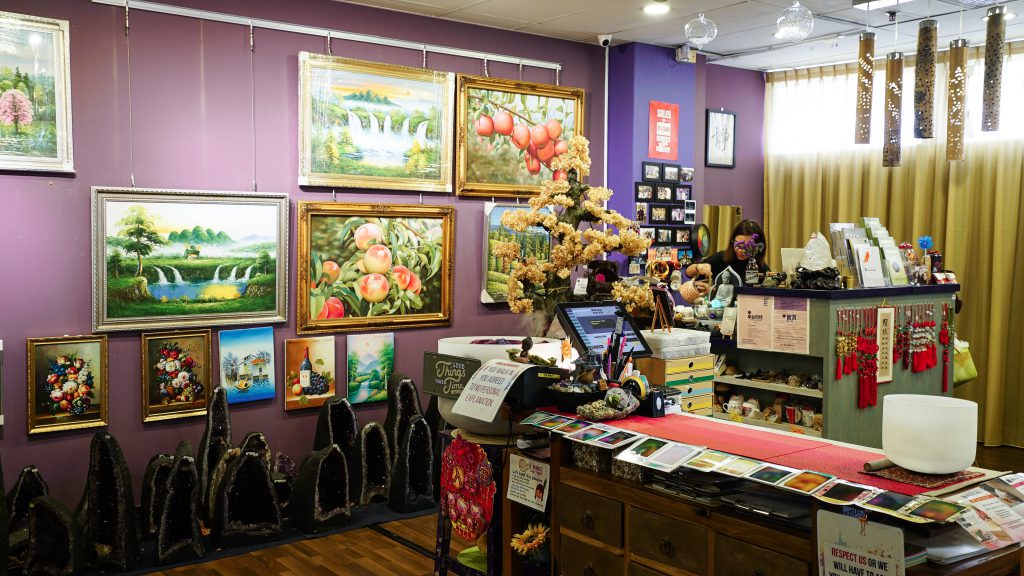
Maybe it’s the warm smile staff wore or the soothing background music, but as I stepped foot into the shop, I felt welcomed and strangely at ease.
Unlike what I had envisioned, the shop isn’t rundown and cramped with sculptures and scriptures. Canvases of scenic oil paintings decorated the walls while gemstones and agate crystals lined two rows beneath them. A counter smack in the middle of the shop is lined with polaroid-like prints of aura photography, with labels such as “goddess aura” and “rainbow aura”.
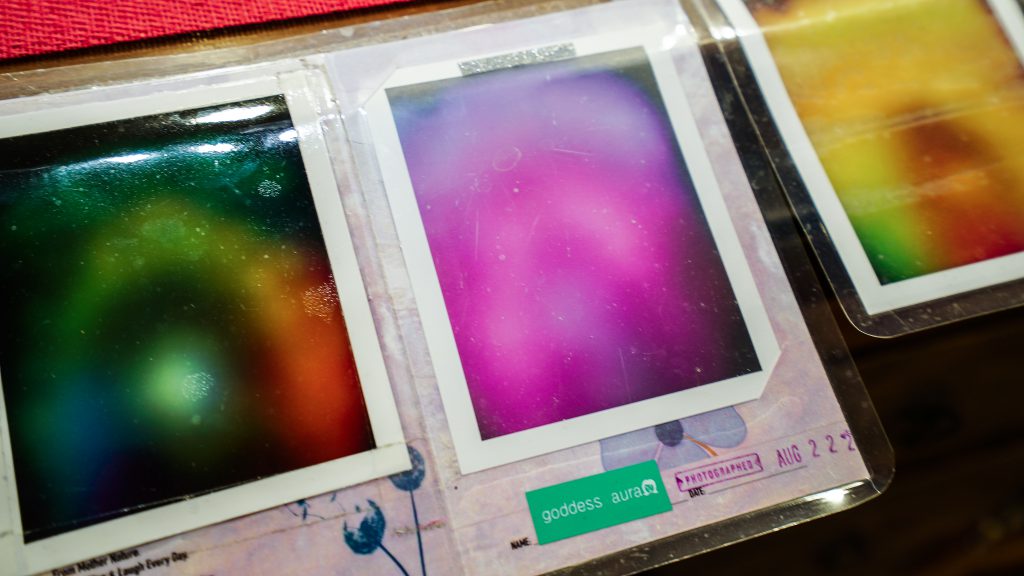
After savouring the cup of berry tea they served, one of the staff ushered me to another spot to get my aura photographed.
Getting My Aura Photographed
With a nervous smile, I made my way to a wooden bench positioned right in front of a black backdrop. A vintage looking film camera propped by a tripod sits a metre before me.
The staff told me to relax and place my hands on the two metal hand prints thats by my left and right, although my mind was racing with questions, “What in the world is going on? What does this do? How does this work?”, I kept mum and did as told.
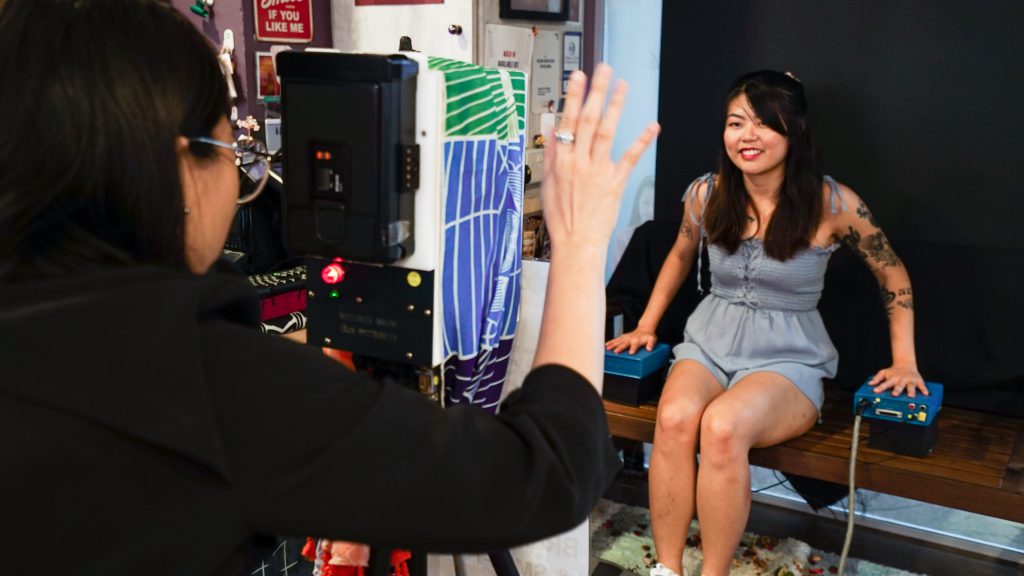
“Okay, now look into the camera, relax and smile!”
I took a deep breath and flashed a smile. I felt like a kid whose portrait was being taken for the school yearbook, excited but also nervous, with no idea what outcome to expect. A few seconds passed before the shutter went off.
A polaroid emerges from the camera and the staff pulls it out as a nearby printer starts to run, printing what looks like an analytical report.
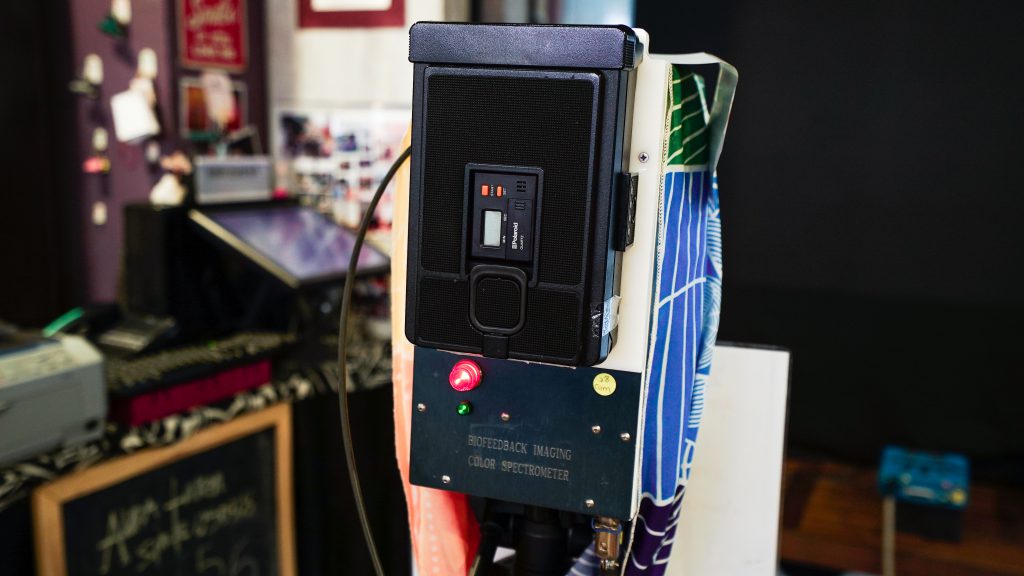
I was then ushered to a more secluded corner of the shop, where Yi Xin greets me with a beaming smile. Unlike what’s portrayed in most films, Yi Xin is not dressed in a long flowy robe with a bandana in her hair and a cat purring on her lap. Instead, she’s got on a dark purple pantsuit, light makeup, and a gemstone pendant hangs from her neck.
At this point in time, I just want to know what my aura portrait means. Is it good? Is it bad? What does it say about me?
Aura Reading
Yi Xin starts off by introducing to me the whole concept behind auras.
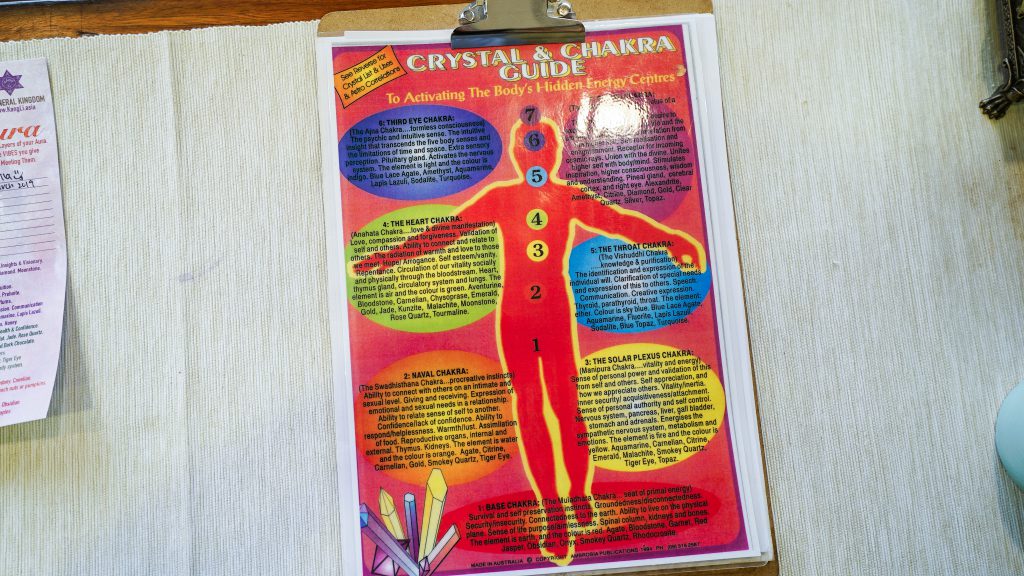
“So basically how the aura forms is that we have these seven chakras that every one of us has. All these points will vibrate and give off energy based on what you think, how you feel and the things that you do. So when they all come together, naturally they’ll form your aura.”
On the left is what you’re attracting in. The right is what your future presents, and the centre is your core.
My aura presently? A bright scarlet red, with a presence of orange at the core. After seeing all the colourful auras that were plastered on the counter before this, I couldn’t help but feel worried, and my defences were up, ready to dispel any misinterpretation that may come my way.
A month back, I’ve gotten my aura photographed for the very first time, and it was a dark brooding red. I showed Yi Xin my previous aura portrait and asked for her views. She placed both polaroids side by side and inspected it for a brief moment before giving me nods of approval.
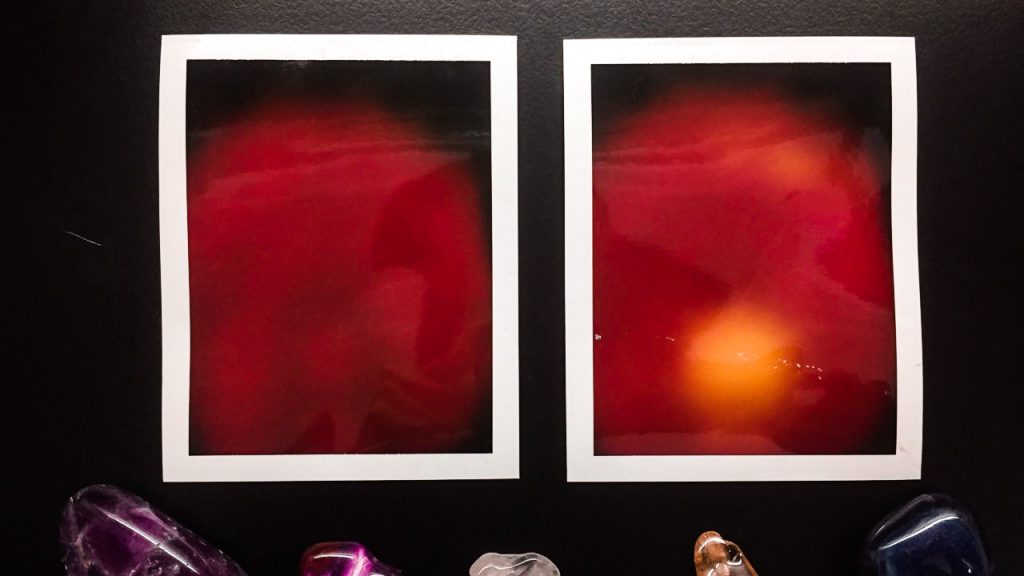
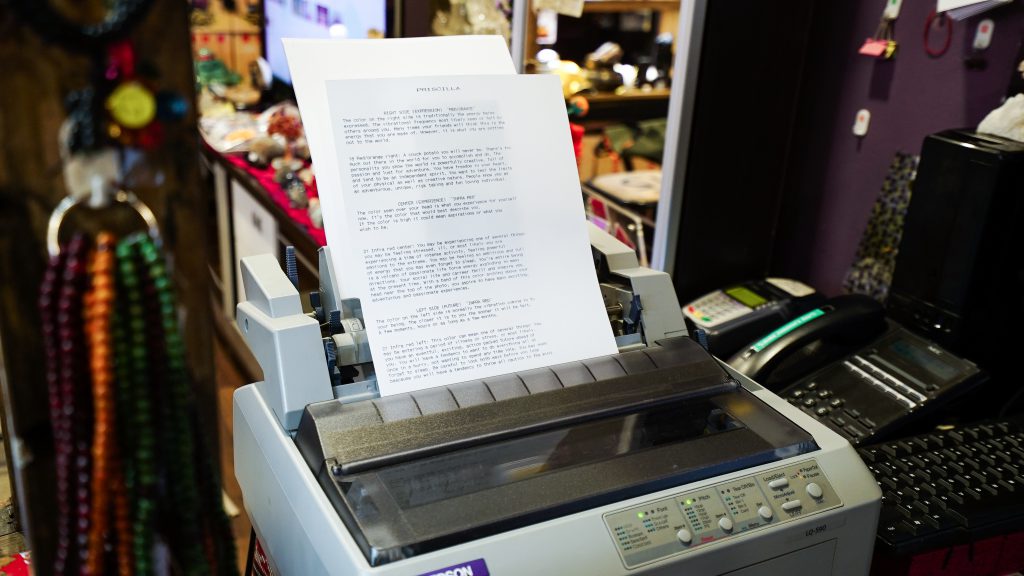
Yi Xin share that I’ve got what she’d refer to as the “warrior aura” and people with such auras have a strong personality and it’s hard to shape someone like us.
“I think all along you are more careful with how you feel and you are more aggressive in the way that you are. The orange at the heart however shows that something lit up in you and you are now happier. Previously you were dealing with some really hard stuff but now you are better. You have dreams you are chasing and you feel joy, although you might still feel stifled sometimes.”
For someone who has only met me for the first time, Yi Xin was surprisingly accurate in reading my personal life. I was in awe, but also bewildered that she was able to deduce that I’ve just came out of a tough period in my life and am now at a much better place.
Any of us in this situation would be.
What Is This Aura You Speak Of?
“Any questions?”
“How were you able to tell all that with just a picture of coloured light? What exactly is aura again? And how did this whole aura thing came about? How does it work?”
Yi Xin laughed and beamed me a smile as she began addressing my doubts.
“Your aura is your energy, how you interact with people, what you put off to people. That's why when you meet certain people you might feel like they’re fierce or aloof, that kind of stuff, it's because of their aura.”
She went on to touch on the origins of aura photography, which was invented by a professor, <a href=" Guy Coggins, who wanted to create a tool to measure the human energy field in real time, and help therapists and healers better understand and aid those in need.
I told her about someone I knew from school who claimed that they could see people’s aura with their own eyes and asked her if that’s possible.
“Actually, I personally believe that it’s tough for one to be able to see auras, especially in Singapore.”
Yi Xin suggest that though it’s not impossible, it’s harder for it to be credible. Even she herself can’t see auras. After all, the auras “photographed” are actually credited to the biofeedback hand sensor and the aura machine.
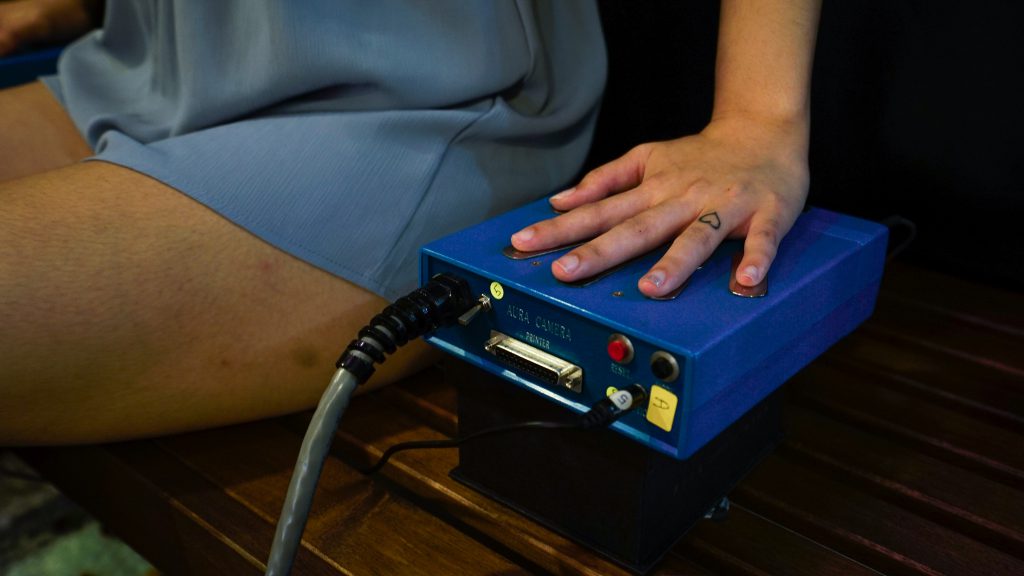
The hand sensor itself has various contact points on them which are connected with certain organs of the body. This allows the machines to measure the electromagnetic field of the user and in turn deliver information about the energetic and auric qualities of that person.
The data is then projected as a radiant coloured glow on the polaroid.
“On the other hand, there are also [commercialised] aura readings
nowadays, where they just want to sell you a product. There are even apps that allow you to get your aura read with just a picture.”
Yi Xin feels that such apps only defeats the purpose as it’s not the most authentic experience, nor will it be as in depth and personalised, thus unable to provide that sense of clarity that most people come to seek for.
The Heiress of A Spiritual Shop
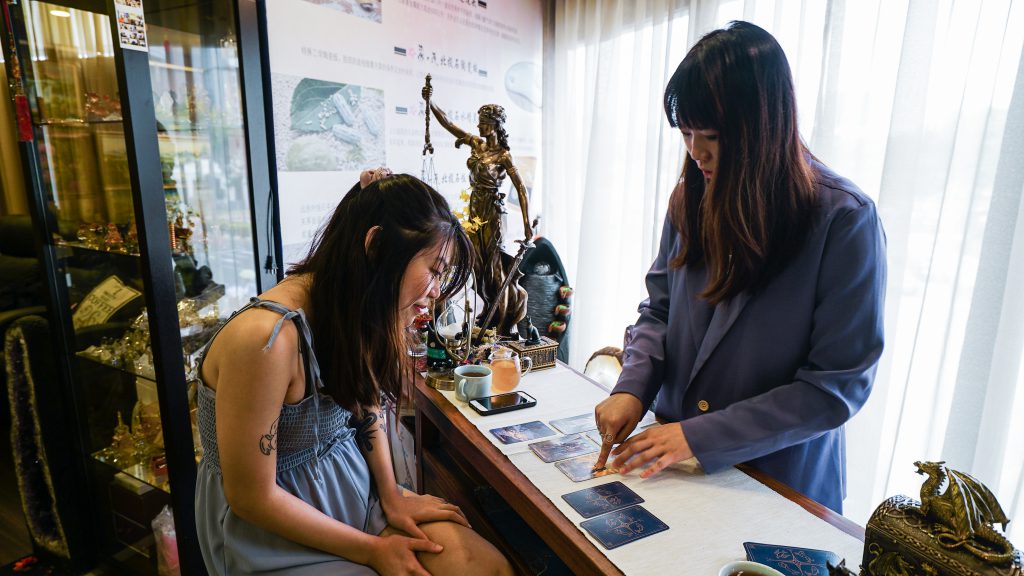
As the daughter of the owners of Kang Li Mineral Kingdom, Yi Xin has been surrounded by spirituality since young. Besides aura photography, their shop also does tarot card reading, crystal healing spa, geomancy and feng shui, to name a few.
Thus, it doesn’t come as a surprise that at just age 17, Yi Xin has already started to dabble in aura reading, tarot card, feng shui and crystal healing, among others.
“Back then, there wasn’t anyone who could teach you such skills, and even if there are, they don't know how to begin teaching as well, so I started learning and reading the basics by myself.”
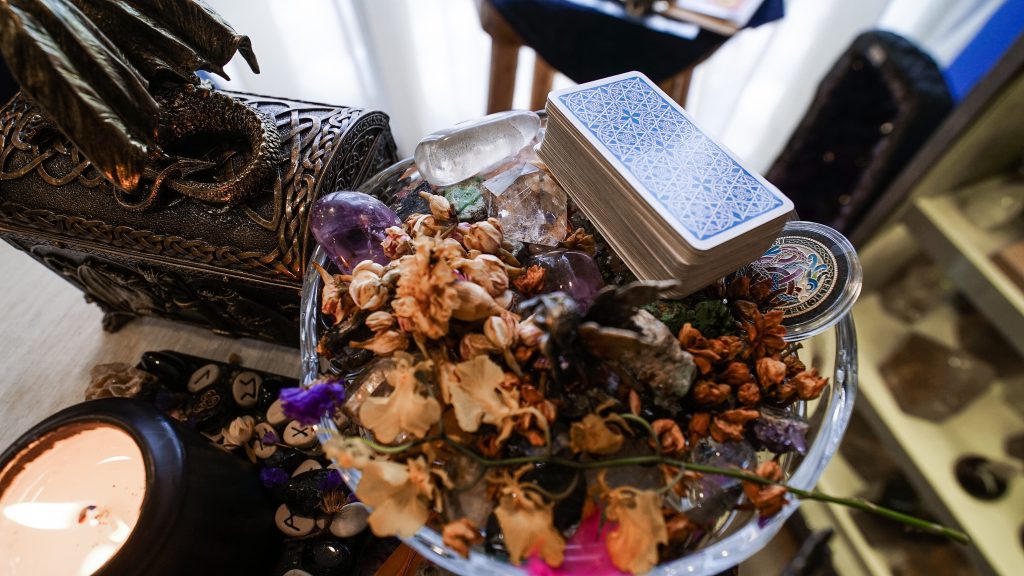
“At first, I thought it was just explaining to people the meaning of the items so I was very [technical] with my readings. But as I grew older and talked to more people, I realised that I needed to meet and observe people of all walks of life to truly be able to identify the different kinds of auras and understand people better. Only then will I be able to know how to help different kinds of people better.”
In her quest to become a better spiritual practitioner, Yi Xin also keeps a diary of her aura reading sessions, where she notes down her own analysis of each customer she served, describing how she felt the person’s mind was, how their “heart” is like, and how their energy felt like to her.
Besides that, she and the other staff in the shop also do aura checks regularly to better understand their own energy and state of mind.
“That's why some people might ask why the report and what I share is different. The report is more general. It gives only the 'first layer', while my reading is based on my interpretation of you as well, and is more [personalised].”
“What Do You Even Know?”
As with everything, there are a lot of people who are skeptical about spirituality in general. Yi Xin is fine with that, but then, there are people who are just downright disrespectful.
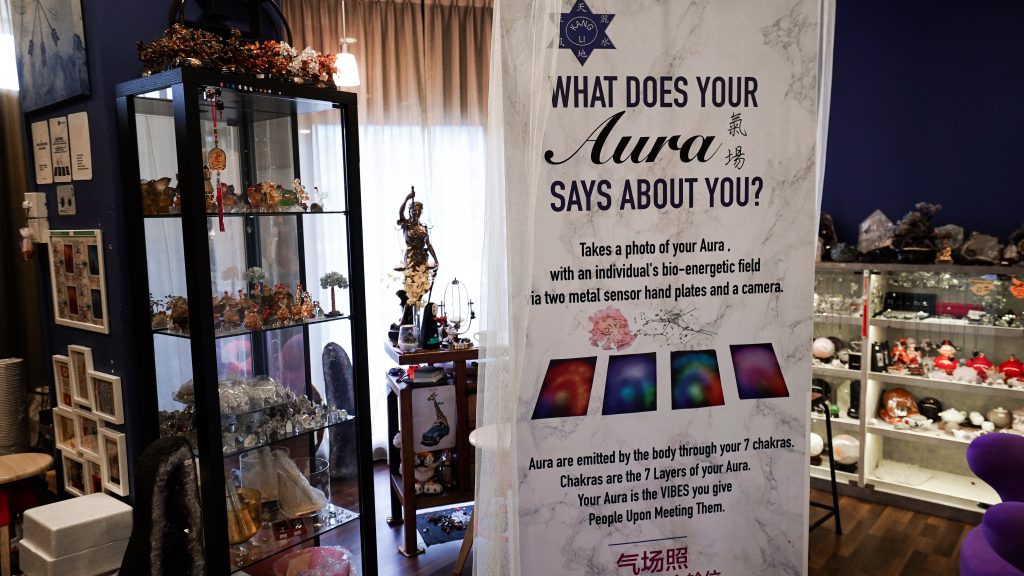
“I’ve had cases where people would come in here and try to taunt me with comments like 'what do you even know about auras, you’re too young' or even challenge me by doing their own reading with their own customers in our shop. Some even come into the shop just to mess with the items.” she sighed as she recounts some of the less-than-pleasant encounters that she has had.
These has often caused Yi Xin to feel dejected, especially so at the earlier stages of her career. But as the years went by, she has come to realise that no matter what she does, there will always be people who don't believe in what she does.
“It used to affect me a lot because it feels like they didn’t even give me a chance in the first place. They come with the mindset that they don't believe and won't believe, and nothing will change if they've already set on the verdict beforehand. That’s why now I prefer to only read for those who genuinely need some sort of clarity and is willing to give it a chance.”
The Light In All Things
But that’s something she’s willing to accept, as long as she gets to continue helping people out there.
“Personally, what I want to do is just help people. People who feel like they’ve lost their hope, is lost in life, can’t properly see a situation or a way out of their problem. As a spiritual practitioner, I believe my purpose is to give people peace of mind and help them gain some sort of introspection.”
However, It’s only recently that Yi Xin saw the light in her career.
“What changed was that I actually met someone who closed himself off from his family for weeks because he wanted to commit suicide. But through the spiritual reading, he opened up and was able to gain another perspective of the problems he was facing.”
It is also because of cases like these that initially motivated her to make the switch from film (which she studied) to this line of work—it is more meaningful and fulfilling.
Some Things Just Are
Be it aura reading, horoscopes, or tarot card reading, the spiritual is always intangible and up to one’s interpretation and discernment.
If a session of aura reading can provide solace to someone who felt like they’ve lost all hope, who are we to determine whether it’s right or wrong? After all, it’s human nature for us to yearn for something to believe in, something that will get us through the toughest of times and provide us with the reassurance of better days ahead.
Whether we choose to believe it or not, it’s undeniable that spiritual readings are indeed beneficial to some.
Perhaps we’ve been asking the wrong questions all along. Instead of being fixated on the whole “is this real” debate, what we should have been asking is “why?”.
Despite all the skepticism, Yi Xin has accepted that hers is not a path that is recognised by most people. It doesn't matter either because it is not for her to decide what other people speak of her.
Ultimately, her biggest wish is for those who visit her shop for spiritual readings to leave the place with a new found sense of clarity to take on the world with zest once more. And if she can be that person to enable her customers or make them that little bit happier, it's enough.
Also read: Legit Or Not? A Sceptical Millennial Tries Hypnotherapy By A Professional In Singapore
First comes the proposal, then the wedding, and then the house. This was once the norm, but not anymore.
In Singapore, when you’ve been in a relationship for a reasonable amount of time, you can expect your partner to ask you one crucial question: “Want to BTO?”
Today, many couples apply for a BTO (Build-To-Order) flat before proposing. Marriage comes a little later, and it can happen before or after getting the keys to their home.
Logically, it makes more sense. It's pragmatic, as the wait for a BTO can be (dreadfully) long. The completion of BTO projects can take around 2.5 to 5 years. And let’s face it. Getting a house in Singapore is stressful. In fact, it’s downright terrifying.
It doesn’t matter if you’re in a relationship or if you’re single, buying a house here is crazy expensive despite the various grants available. It’s also incredibly difficult because you’re competing with hundreds of other buyers bidding for the same flat you wish to get. And when you are getting something which you will most likely have to continue paying for for the next 20 to 30 years, you can expect everyone to 'fight' for their ideal choice.
This competitiveness for a BTO forces many young Singaporeans to commit themselves into a relationship when they may not exactly be ready.
THE PRESSURE TO FIND LOVE FASTER
Because of the amount of time it takes for you to successfully get the keys to your new home, it means having to find the person you are 'meant to be with' a lot faster.
I know of singles in their mid 20s who are still working on finding the right person to date, let alone have a relationship with.
Dating itself has become a more daunting task than before. From the get-go, we start thinking about whether we see a future with this person, because we no longer have time to spend on someone whom we’re not going to spend the rest of our lives with.
A lot of singles in their mid and late 20s go into their first date hoping that it’ll be their last first date. We’re no longer dating to date, but we’re dating for marriage. I’ve even heard a couple of my singles friends tell me, “I want my next boyfriend to be my last one.”
Sophia, 25 and single, shared how she goes into every first date subconsciously analysing everything about her date, to get a sense of whether she sees herself spending the rest of her life with him.
“First dates used to be about having a good night out while getting to know someone,” she shares. “Now I find myself thinking about stuff you’d usually only start thinking about after knowing someone for a couple of months like “Does he want kids?” and “How religious is he?””
As much as it stinks for people like Sophia, who thought dating would be “fun and enjoyable”, buying a house in Singapore means having to think about our future a lot quicker.
It's not a bad thing to date with the purpose of marriage of course, but it may not necessarily be a good thing to be bogged down by the practicalities of what is seemingly a talk for much later on. While applying for a BTO is a great way to get us to plan for our future early, it also, in a lot of ways, ruin romance.
IS OUR HOUSING SYSTEM A CURSE?
But it’s not just the singles who are stressed out. Couples are having to commit to the person they are with a lot earlier in their relationship. And while that’s not exactly a problem, it does provide immense pressure to someone who's not ready for that level of commitment, while facing their partner who is.
No longer do we have ample time in our hands to enjoy the ‘honeymoon phase’ of a relationship. While there are the lucky few who stay with their school sweethearts for 10 years, a lot of us only find “the one” somewhere in our mid 20s.
But there are instances where despite having your lives planned out together, relationships simply don’t work out.
What happens when you have a BTO on your way, and you realise that you can no longer see a future with the person you are with?
I was surprised to find that there wasn’t a lack of post-BTO breakup stories within my circle of friends alone.
Alvin, 27, went through a breakup with his girlfriend of four years after they had successfully balloted for their home last year.
“She said that she didn’t see a future with me anymore and just needed some time for herself,” he shared. “It was later that I found out there was another guy.”
“I guess no matter how much you plan for something, sometimes life just kicks you in the nuts,” Alvin laughed.
A breakup was the last thing he had expected to happen, especially at a stage of his life where he thought he had his future all planned out.
What makes BTOs all the more scary are the implications that cancelling your application causes.
There’s no doubt that you end up forfeiting the money that you’ve invested, depending on how far along in the process you are.
You also lose your first-time applicant advantages, and if you want to apply for a BTO with your next partner, or as a single, you have to wait at least a year to be able to do so.
“It sucks that the implications of forfeiting a BTO are so costly, literally,” Alvin says. “But at least it’s taught me to take my time and not rush into settling down with someone.”
Samantha, 25, whose boyfriend also broke up with her after applying for their BTO together, believes that a BTO is an expectation created by society.
“Instead of asking, 'Proposed already ah?', people ask, 'BTO already ah?' which I think indirectly gives couples a lot of pressure to get a BTO.”
It seems like we assume getting a BTO guarantees a relationship. But there rarely is ever a guarantee on anything.
“A lot of couples rush into getting a BTO because they think that might give them some ‘security’”, she shared. “But that shouldn’t be case, you should apply for a BTO because you’re secure about your relationship.”
SOMETIMES YOU JUST WORK THROUGH IT
It’s normal to feel unsure about your relationship and stumble onto rough patches along the way. The stress that comes with the BTO doesn’t help either. What was meant to be a significant part of a couple’s life has become a stressful endeavour instead.
Couples who have successfully gotten their house have had their own share of rough patches along the way. But these couples found a way to set things on track to start building their future with their partners.
Mabel, 28, who has now secured her home through Sales of Balance (SFB), wasn’t sure if she was ready to commit to her boyfriend of 3 years before they applied for it in May 2018.
“I didn’t know if I was ready to commit,” she shared. “Because it’s not only about committing to a house, but committing to the rest of my life ahead of me.”
“Whenever we spoke about applying for a BTO, a part of me wanted it, but the other part was also scared.”
Today, Mabel and her fiancé have the keys to their house, and will be getting married in a few months' time.
“When I told my fiance about my fears, we talked about it and decided to make it work together,” she continued. “I saw his efforts in trying to make our relationship work and I just wanted to do the same.”
For Alexa, 25, applying for a BTO was a natural next step in their relationship. When they applied for their BTO, they had been together for two years and knew they were ready for the commitment.
Yet, it was after they were successful in their ballot that Alexa’s relationship hit a rough patch.
“That ‘ready’ feeling became very different as we went through a seriously rough patch that really made us think if we should move forward,” she shared.
Like anyone else in her position, Alexa didn’t want to go through the hassle of withdrawing their application.
“There was definitely a lot of pressure because this was an investment we had gotten ourselves into.” she continued. “This really showed me that the BTO system can really be a burden.”
While in many ways, having a BTO on the line does encourage you to make things work with your beau and give your relationship another chance, it doesn’t allow you to consider your relationship rationally.
“We had to tell ourselves to consider the future of our relationship as if there was no BTO involved,” says Alexa. “Because we knew that if we let the BTO decide our future, we wouldn’t be happy.”
Fortunately, Alexa and her boyfriend managed to get past their rough patch and are eager to start their life together today.
DON’T JUMP THE GUN
It’s normal to have the urge to jump on a bandwagon that everyone around you is on. We all want to have a great home by the age of 35. We all have an ideal ‘plan’ of where we want to be by the time we’re in our late 30s.
Despite being single for the past two years, Jason, still has no qualms about rushing into a relationship at 27.
“I get that in Singapore, settling down with someone takes a lot more time. But I would much rather wait until 35 and get my bachelor pad than get a BTO with someone I'm unsure about,” shares Jason. “Singlehood doesn’t scare me, being with the wrong one does.”
BTOs should be a mere stepping stone into the future you want to build, it shouldn’t be the foundation of it.
“Your future shouldn't depend on getting a BTO,” says Alexa. “It’s better to be 30 and single than to be with someone you’re unsure about.”
Also read: Hustle Together, Stay Together - These Singaporean Couples Prove That Office Romance Can Work
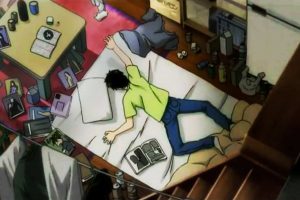
WHAT'S HIKIKOMORI?
For the uninitiated, hikikomori is a term used to describe those who rarely leave their house, and seek extreme degrees of isolation. Some never set foot outside their homes. Others occasionally do, heading out to buy food or even to the cinemas for the latest blockbuster, but all of them are completely, socially isolated. They would even limit their interaction with their own family members. Although this social phenomenon is predominantly widespread in Japan, I recently stumbled upon a Reddit thread that tells me that we too, have our share of social recluses hidden in their rooms somewhere, unseen by society. Through a local forum, I stumbled upon Andrea’s story. Back then, Andrea cooped herself up at home for eight consecutive months. Waking up at five every morning, she spends her time browsing Reddit, reading and binging on TV series, only leaving her room for lunch and dinner, which her parents would prepare for her. At around 11 pm, she will head to bed and the same routine repeats for months, and in those months, she did not step out of her house once.Her home had become a place of solace for her, a fortress she can’t bear to leave.Likewise, this is the case for the many hikikomori in Singapore, who have taken to forums to pour the feelings that they have hidden away from their friends and family.
WHY DO THEY ADOPT THE HIKIKOMORI LIFESTYLE?
Hailing from a ‘financially comfortable’ background, Andrea is aware that she is more fortunate than most, as she could afford the option of not having to work or fend for herself. But because of that, she feels more pressured to pay her parents back for all that they have done for her. The low self-esteem, crippling social anxiety, and negative outlook on life that came from her being bullied in school when she was younger kept her imprisoned. The self-imposed pressure and the expectations about the future stressed her out and caused her to feel even more helpless. When she finally entered the workforce, work became her life. All she did was wake up, go to work, head home to have dinner with her parents, and repeat. Due to her micromanaging boss, she grew to resent work. Even so, she continued working for some years to save up a sum of money before eventually resigning, dampened by the rat race. “So after that, I didn’t really have a plan. I just stayed home. Months quickly turned into years. And because I was used to a solitary lifestyle of just reading and watching drama and anime, I just shut myself off from society and basically became hikikomori, just living off my parents and my savings.”ONLY FOR THE PRIVILEGED?
Of course, not everyone is privileged enough to be able to just drop everything and withdraw from society in the first place — most of us are not as financially blessed. Through r/hikikomori, I was able to speak to another Singaporean hikikomori, 24-year-old Josh*, who shared how he was once a hikikomori. Like Andrea, Josh comes from a financially stable family.“Maybe we were too sheltered. Maybe we were too spoiled and everything comes to us easy and without any barriers. Back then, I felt that no matter how useless I was, I would still be able to live comfortably, or still be able to live somehow.”An avid fan of Disney’s classics, Josh had a grandiose dream of being a 2D Animator for Disney. When news broke that Disney closed down their 2D animation company, his hopes and dreams were dashed. Dejected, he let himself waste away, passing the days by gaming and watching anime at home.
WHAT'S THE CAUSE FOR THIS?
For many of us, such behaviour is aberrant and tough to comprehend, much less empathise with. It’s not surprising for us to jump on the conclusion that hikikomori chose to stay cooped up at home because they are just “lazy” and “spoiled”. “We all have problems, so why can’t they just do something about their problems?” But unlike what we think, the hikikomori syndrome is not another convenient excuse to be idle.In fact, most, if not all, hikikomori hate the plight that they put themselves in, and they are ashamed of it.“When I was hikikomori, I lost all desire for wants. Normal things like going to movies or buying expensive new things don’t interest me anymore. I don’t know why I exist, to be honest. Sometimes I can feel my parents’ disappointment in me and I don’t feel good too,” shares Andrea. They have confined themselves to their homes, but most hikikomori actually want to return to society. However, the fear and anxiety of how society may react to them. Even if they manage to take the first step out of their homes, they are plagued by this constant fear that they are being judged by those around them, afraid that the world wouldn’t come to accept them because of their past. Maika Elan, a Photographer exploring the topic of hikikomori, shared on National Geographic that “Over time, hikikomori lose whatever self-esteem and confidence they had, and the prospect of leaving home becomes ever more terrifying. Locking themselves in their room makes them feel ‘safe’.” Similarly, Andrea admitted that the very paranoia of being judged for being a hikikomori is the toughest obstacle she had to overcome. She would often slip back into isolation because of it. Thanks to volunteer work at a church, Andrea was able to break out of the hikikomori syndrome. She eventually managed to land herself a job through one of the other volunteers. As for Josh, he stumbled upon the animes Re:Zero and Konosuba, which shifted his perspective on life. Both shows feature male protagonists who were hikikomori and Josh was able to relate to them strongly. “In Re:Zero, it tells us that no matter where you are, nothing’s going to change if you don’t put in any effort to take charge and improve yourself.” Witnessing his friends’ success also pushed him to eventually change his lifestyle.
“What gives them the drive to keep doing what they do? Why are they set on improving themselves and going out there to find jobs and socialise, and to be proactive with their lives?”These were the questions that Josh posed to himself, and subsequently embarked on a quest to uncover. “Sometimes it’s hard, but you just have to remember that there are other people out there who are struggling and still trying their best as well.” Today, he works as a Digital Designer, which is not too far off from his initial dream. Although, there are others who struggle to break out. “It all started after he finished his degree overseas and came back. He didn’t find work and just stayed at home gaming and surfing the net. We’d ask him to come out for coffee or meals but he’d always turn us down.” Tim*, a male in his 30s, shares with me about his friend who has been a hikikomori for over 10 years. “I’ve a feeling that the shame of being long unemployed while everyone else is working just drives him to become a hikikomori. I guess his parents still buy him food or give him spending money so he doesn’t need to force himself to get a job.”
A VICIOUS CYCLE OF FEAR AND PARANOIA
Although hikikomori is a social condition that has not been widely recognised as a mental illness, many of them do require mental health care. Some turn to this reclusive lifestyle due to a lack of purpose or existential crisis while others do so as a form of rebellion to cope with trauma such as childhood abuse or bullying. While hikikomori wish to recover, they are so ashamed of their past that it freezes them up, causing them to retreat back into their shelter. However, the longer they isolate themselves from society, the harder it will be to integrate back into it. It’s a vicious cycle that they are dealing with. For such people who haven’t interacted with anyone nor formed any ‘proper’ relationships, it could be tougher for them to reintegrate into society as they grow older, especially if their family members (like their parents) are no longer around to support them. In Japan, this has become a real problem. These days, it’s an absolute nightmare if we were to be void of our handphones, computers, and the internet. While technology is not the root cause of the hikikomori syndrome, it provides a gateway to endless virtual worlds that we can immerse ourselves in. Nat*, another Redditor, says he usually spends an average of 10 hours on his computer and does not see the need to leave his home. Whether it’s food or entertainment, technology has made that conveniently accessible and available for us. There are even avenues to learn and work ‘virtually’, with online classes and freelance jobs. All of these make it even easier for one to slip into the hikikomori lifestyle. With that said, however, completely isolating oneself from society is not healthy, and should not be normalised. Regardless, Josh hopes that hikikomori will have it in them to realise that they are responsible for themselves, and find the strength in them to overcome it, just like he did.“There’s only so much that others can help you with. Only you can change yourself. Even if it’s for your parents or yourself, I hope you will find it in you to want to get better.”“We all are living for a reason. We need to reflect on that more often, to put our lives into perspective. Once things are in perspective, it will all make sense in the end.” “After all, life exists and thrives beyond these four walls, but it’s up to us whether or not we want to open the door to live.” *Names have been changed to protect the identity of the individuals. Also read: It’s The 21st Century, Why Do We Still Treat Maids Like Slaves? (Header Image Credit: Unsplash)
1. IT WAS AN ACCIDENT
I only masturbated when I was 18 because I always thought it was a “dirty” deed from the way my friends used to tease each other about it. But one night, I was lying on my bed and hugging my bolster while watching a movie clip that turned me on. That’s when I impulsively began rubbing my legs against my penis (with my clothes on). I remember it feeling damn good. I kept rubbing until... yeah, it came out. Did I accidentally masturbate? Maybe. - Riduan, 21 [caption id="attachment_3538" align="aligncenter" width="445"] GIF Credit: GIPHY
GIF Credit: GIPHY
2. BOYFRIEND WANTED TO WATCH
The first time I masturbated wasn't by choice. I was 18 and I only did it because my boyfriend wanted to watch me touch myself. It felt like my body wasn’t even mine. I haven’t done it since we broke up. - Jas, 213. LATE-NIGHT GAMING
I was a 15-year-old who was really into this massively multiplayer online role-playing game (MMORPG). One night I decided to strip one of the female characters naked (well, almost naked because I couldn’t remove their underwear). I don’t know what made me think that I should rub myself, but I did. But after the wave of pleasure passed, I quickly put my clothes back on because I felt dirty. - Wei Jie, 25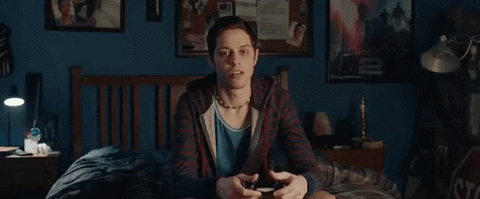
4. OUT OF BOREDOM
I was 18 or 19 and wanted to try it out for myself, having heard how great it feels. I went online and googled tips on masturbating. During school break, I was home alone and decided to try it out. It was horrible and uncomfortable. I didn't use porn or anything. I thought you didn't have to be horny to masturbate, I thought it was just something you could do when you were bored. - Aisyah, 255. THE ABSENCE OF A GIRLFRIEND
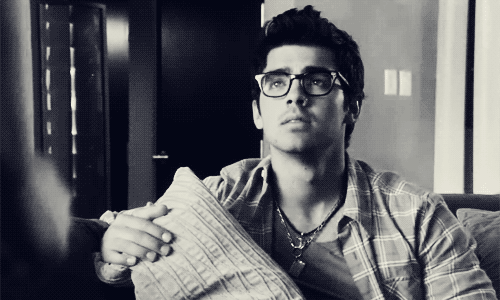
6. SINNERS GO TO HELL
I was 13 years old and my friends were talking about some website in class, so we went to one dude's house to check it out after school. We realised it was porn, and us being guys, we just kept on scrolling. Then one of my friends asked us if we had jerked off before. Most of us didn’t know what that meant, so he explained it to us. That night I went home to the same website and tried jerking off. I felt a mix of emotions after, but being Christian, I remember thinking I’d committed a sin and I’m going to hell. - Jason, 26
7. AT THE AGE OF 4
I was 4 years old, and I didn't know what it was or what I was doing, I just knew that if I pressed my genitals onto something, it will feel good. There was once when my mum caught me in the act and interrogated me, asking me who I learnt that from. That made me think that I did something wrong, because why else would I get chided for it? - Sophia, 198. WERKING THE POLE

9. I THOUGHT I WAS ABNORMAL
When I first masturbated at the age of 17, it was because I was curious, and wanted to know what feeling 'sexually satisfied' felt like. I'd only heard of guys doing it and that made me think that I was 'abnormal' because I, a female, also had sexual urges. And even though I enjoyed it, I also felt guilty. I felt like I was doing something 'wrong'. My parents never talked to me about it, so I automatically assumed that it was something clandestine. - Cheryl, 2710. A STOOL AND A TOILET ROLL
I was 11 and simply curious and interested. So I tried to f**k the hole in the stool. Didn’t work. Tried to use a toilet roll, didn’t really work too. Tried my hand, finally worked. But after that it felt weird and I thought that I needed to pee. Oh, and I also felt dirty. - Daniel, 24
WHY THE GUILT?
A lot of these stories have one thing in common - the feeling of guilt. Many of these stories end with the individual feeling dirty or ashamed. For some of us, our religion tells us that it's a sin. For others, the fear of our parents finding out fills us with shame. Perhaps it's because of the fact that it happens in private, we feel that it's something that should be hidden. And because no one talks about it, there's no one to tell us if it's right or wrong. Maybe it's too hopeful to think that we can start talking about masturbation openly, but we could begin with asking ourselves why we feel guilty, and if that guilt even makes sense to us. If there's nothing about masturbation that rubs us the wrong way, isn't it better if we could find a way to work through the guilt and enjoy this 'pastime'? Also read: Is There A Need For Better Sex Education That's More Than STDs And Abstinence?THE IMPORTANCE OF LABELS
Following the age-old debates surrounding LGBT messages, there are two types of people with regards to having so many labels. There are those who believe these labels are important in the fight for LGBTQ+ rights, and there are others who feel that the 'never-ending' list of labels is just becoming plain ridiculous. In the new wave of terminology, we're also hearing words like polyamorous, demisexual, genderqueer, two-spirit and a whole lot more. If you're wondering if it'll ever end, I'd say probably not. I wanted to go beyond learning the definition of these terms, which for all you know, I could've gotten from Wiktionary. To get a better understanding on the importance of these labels, I spoke to some people from the LGBTQ+ community and asked how they felt about having so many labels. Of the five queer people I spoke to, four believed that labels are crucial to the community and society as a whole. According to Lorraine*, who identifies as pansexual, the various labels help those who are trying to figure themselves out in the early stage of finding their sexuality. She admits that the labels can be quite confusing, but having them allow individuals to find themselves. And if these individuals wish to label themselves, they can. Sean, a gay man and the founder of Dear Straight People, says that labels are not only important to give the community a means of identity and belonging, but in helping the general public make sense of the LGBTQ+ community. But he also adds that he doesn't want people to see him just for his sexual identity.NECESSARY OR JUST GETTING TOO MUCH?
While these labels fight for inclusivity, they have also become a subject for mockery in society. These labels can seem like a bit ‘too much’, not just for straight people, but for some queer people as well. They believe these labels make it difficult to normalise LGBTQ+. Tim*, a gay Singaporean, feels that in a society that already judges them for being who they are, these labels give people an opportunity to criticise them further. His experience with trying to explain the terminologies to his friends often results in looks of confusion, which made his straight friends less interested and more reluctant to learn about it. It didn't help that he would hear people passing comments like "wah you all damn extra." I also spoke to a few straight people to hear what they thought of these labels - do the labels help them understand queers better? Andy*, a straight male, feels that labels are difficult to understand for someone not in the LGBTQ+ community. Not only because there are so many labels, but also because he prefers to be acquainted with someone for who they are and not because of a label that he may not understand completely. Even if he does understand, it's hard to remember so many labels. As a straight female myself, I disagree. For me, these labels make it simpler to understand a person. It not only informs me about their sexual identity, I'm more aware of their struggles. It also helps me differentiate a transgender from a transsexual, for example. The fact that these labels are made fun of or are a target for mockery only tells me that there's still a long battle to be fought for the LGBTQ+ community. These labels might not be as crucial to someone like me. But for the vast majority of the queer community, these labels give a powerful sense of acceptance and belonging. Just like any other labels we use to identify ourself with - male, female, millennial, Chinese, Malay, Indian - we have to remember that they are there for a reason. We cannot deny that they give recognition to a group that has been marginalised since its inception. If these labels exist to help a group of individuals find self-acceptance in a complex world, perhaps we should respect that. So what do you think? Are labels are an important part of the LGBTQ+ society? Also read, We Fight For The Freedom To Love, But Is Singapore Really Ready To Accept LGBT? (Header Image Credit: Chek Yong - Travel Photography via Pink Dot 2017)My dad wasn’t supposed to come home at that time, but there he was, and he saw Tim. What followed was an awkward conversation in the lift with my dad. "Who is that boy?" "He's just a friend." He obviously didn’t buy that. I mean, which guy friend would send a girl home without any particular reason right? When we reached home, his exact words to my mom were, “you should ask your daughter to bring her boyfriend home next time.” I sighed as I shut myself in my room, ignoring whatever conversation my parents were going to have. Well, shit. That was it. There was no point trying to hide it anymore. A million thoughts ran through my mind. On one hand, I was relieved, but there were so many worries that came after: Were my parents going to disown me? Were they going to tell every living relative about how I've brought shame to their family name? Were they going to force me to break up with Tim?F**K.
THE TRUTH IS OUT
No one spoke about the incident until the following night's dinner, and it was a conversation I hoped never came. My parents asked about 'the boy that dropped me home'. They wanted to know how old he was, what he does, what his parents do - the usual stuff. But they also asked me the one dreaded question, "why a Chinese?" How was I supposed to answer that?I didn’t look at his race when I fell in love, I fell in love with the person he is.I tried to convince them that it didn’t matter that he was Chinese. But they were adamant on the same thing – “He’s not a Hindu”. They refused to see him for who he is as a person. They only saw him as not Hindu. I was frustrated and hurt. They hadn't even met him and they were already dismissing him and our relationship. They wouldn't even give him a chance just because of his race. It was illogical, but at the same time, expected. My family has always been conservative. My parents never outrightly forbade me from dating a Chinese but it was heavily implied that bringing home a boy of a different race was frowned upon. On the other hand, Tim's parents knew about our relationship and have accepted me as part of the family a long time ago. I had found a second family in them, joining them for significant family gatherings like Chinese New Year dinner and birthday parties. I love my parents, but even I have to admit they can be pretty racist. Over the years, my mother would make comments on how Indians are better than other races, how we are more "elite". I'm not entirely sure where this racism stems from. Having known Hindus who converted out of their faith, she might have feared that her children will do that too. Perhaps that's why she would always tell my brother and I, “no matter what, don’t tarnish my religion.”
THE ULTIMATUM
Which is why when I tried to persuade them to meet him before blatantly disapproving our relationship, they gave me an ultimatum instead:They wanted me to to think about a relationship that they didn't see a future in. Me being me, I told her to think about it too. It might have felt like a 'power move' when she dished that out but the two-year ultimatum seems like a joke now. To me, it felt like an excuse for my parents to not deal with it. Because I had thought about it, about everything that could possibly cause a conflict between us, and race and religion were the last things on that list. Because of this ultimatum, my life and relationship with Tim have come to a standstill for the next two years. While my friends are applying for a BTO, getting engaged, or making wedding plans, all I’ll be able to do is look at my Facebook feed and sigh over the predicament my parents had put me in.“I’m giving you two years to think about it. We’ll talk about this then.”
LOVE VS FAMILY
I'm afraid of where I will be in two years. I don't want to be in a position where I'll have to eventually choose between my boyfriend and my parents.How is anyone to choose between the person you want to spend your future with and the people who brought you into this world and to the person you are today? I owe my parents everything and I can't possibly build a future without them in it. Neither can I picture a future without my current partner. I don't mean to sound melodramatic but let's face it, many of us do things just for our parents. It could be something like going to a school our parents preferred or having children because our parents want us to. We do these things out of filial piety, even though it may not be what we really want. Sometimes I wonder, "why can't my parents just be happy in the fact that I'm happy?" In a world where it's difficult to find someone you are committed to love and whom is committed to love you back, it's a wonder I had found it at all. It's been 6 months since they gave me the ultimatum, which means I have another 1.5 years to hope for my parents to have a change of heart. For them to realise that when it comes down to it, race or religion does not and should not define us or our relationship. And I really pray that I will not have to choose between a 6 year relationship with a partner I see my future with and family. *Name has been changed to protect the identity of the individuals. Also read: It’s 2018 – Why Are We Still Paying Wedding Dowries?."How am I to choose between my partner and my parents?"
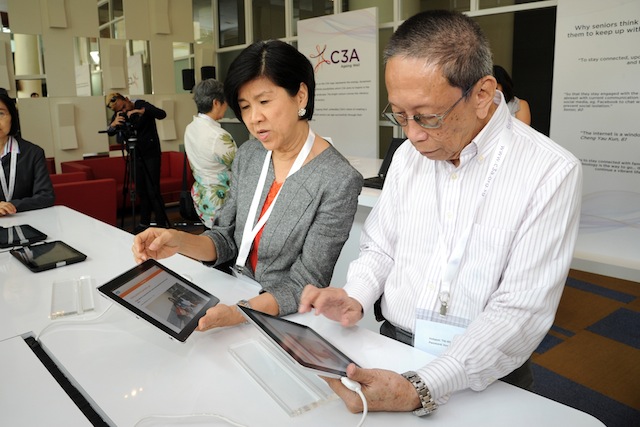
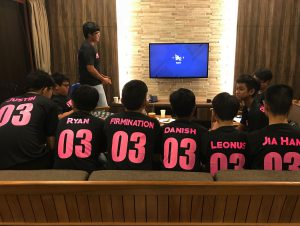
You want beer?
I had my first beer at 14 years old, with classmates of the same age. Yes, we were absolutely too young. How then did this group of underage kids get beer? Like how all delinquents get their alcohol or nicotine at chalets: through an ah lian’s older boyfriend. No one at 14 appreciated the bitter taste of alcohol, but we each downed half a can anyway; probably from peer pressure and the desire to feel more mature than we really were. In fact, another class was also having their first taste of alcohol next door. They didn’t think anyone would find out since they disposed of the evidence discretely. Unbeknown to the class, one of their classmates went home wasted. When he vomited in his mother’s car, the cat was out of the bag and the principal found out.
Chalets Are The Perfect Excuse
When I turned 18 and went to my first club, I left the party at 2am because my parents insisted on picking me up. I wasn’t embarrassed but rather, upset for missing out. From then on, I would tell my parents I was staying over at a chalet if I ever wanted to spend the whole night out. And I'd get their approval - no questions asked. For some of my friends who are in forbidden relationships because of race, religion, or strict parents, chalets have proven to be the perfect cover for staying out late. Many staycations were only possible because of that excuse too. Could our teenage years be as exciting and thrilling as it’s supposed to be without chalets? I doubt so. Since they are considered safer and more acceptable than a club, a hotel room, or someone’s home even, chalets were and still is the perfect white lie. I’m sure teenagers these days have found their own way to dapple in these same vices, but I still can’t help but feel sad that the chalet culture is dying out. It’s almost like seeing a part of my childhood slowly disappearing. I’m aware that in chalets, <a href=" scandals and drug orgies thrived. But for me, it was simply a place where I had significant moments of prepubescent growth and new adventures. Unlike Tamagotchis and MSN, chalets were more than just a way to connect and have fun. It was where we learnt to define our own moral grounds and really grew up. (Header image credit: mkvlln voto) Also read, Glo-Up Or Fade-Out: 8 Millennials Share Their Life Experiences In The Past 10 YearsWhere is the Singlish? Why all Chinese people?Before we come to our hasty conclusions, it is important to note that the movie is actually based on the 2013 novel written by Kevin Kwan. Having read it last year, I feel that much of the criticism directed at the movie is undeserved and it would do to delve into the story. Frankly, I read the book intending to hate it. Literally judging it by the cover, I assumed it was some kind of lame chick-flick story but ended up really enjoying it for its strangely nuanced approach to satirising the Singaporean-Chinese elite. Hyperbole is the name of the game and the book takes on a generally mocking tone about the absurdly decadent lifestyles of the super-rich, the obnoxious snobbery of this insular class, and the superficiality of the various characters.
 Plenty of people have criticised the trailer but don’t seem to have grasped this concept - that the book, and by extension, the movie is poking fun at a very particular slice of society: the filthy rich in Singapore.
American Asians have lauded the movie for it is the first movie with an all-Asian cast in <a href=" years. Historically, Asian portrayals in Hollywood have at best been problematic and Asian actors have often been relegated to play denigrating stereotypes. What’s worse is the rampant white washing of characters that could have easily been played by Asians. From this angle, it’s true that Crazy Rich Asians is a <a href=" step forward towards a diverse Hollywood and is definitely something worth celebrating.
Plenty of people have criticised the trailer but don’t seem to have grasped this concept - that the book, and by extension, the movie is poking fun at a very particular slice of society: the filthy rich in Singapore.
American Asians have lauded the movie for it is the first movie with an all-Asian cast in <a href=" years. Historically, Asian portrayals in Hollywood have at best been problematic and Asian actors have often been relegated to play denigrating stereotypes. What’s worse is the rampant white washing of characters that could have easily been played by Asians. From this angle, it’s true that Crazy Rich Asians is a <a href=" step forward towards a diverse Hollywood and is definitely something worth celebrating.
Not Singaporean Enough
What about in the context of Singapore? Notably, when I used the term ‘Asian’ earlier, it lumped together various ethnic groups and is currently used as an umbrella term for small populations in the United States to rally and take shelter under. Race is a contentious term in and of itself and naturally, representation takes on a different flavour when we turn our heads to vibrant, vivacious Singapore. Singaporeans have criticised the lack of any other races making an appearance. They ask, “where are the non-Chinese people?” Or, “all the non-Chinese characters are servants.” Again, a major plot point is that these rich families are absurdly parochial about protecting their bloodlines. In fact, the second book features a character who is stopped from marrying ‘a girl whose skin tone was one shade too dark’ and because ‘for eleven generations the blood will never be pure’. Essentially, the story portrays how these families fervently keep people deemed unsavoury out of their dynasties. To me, the lack of minority representation is a point implicitly made by the writer and not some kind of explicit insult or a result of racist, wilful ignorance. In some ways, the story is a snapshot of Singaporean culture. One interesting idea is the undertone of ‘colonial hangover’ that gilds the opulent backdrop of the story. A trope used regularly in the story is how the filthy rich families subvert the old colonial masters with their vast money – a point of irony that I greatly appreciated. I especially liked that one bit when the family instantly buys out an expensive hotel in London because the hotel manager was being a typical snobby ‘ang mor gou sai’ (literally translates to mean ‘red-haired dog shit’). Even the juxtaposition of the Singlish accents of new money Goh Family against the British accents of old money Young Family is intriguing given how many Singaporean families became prosperous by the fidelity of their colonial likeness. Even now, we as Singaporeans glorify certain attributes such as British accented English or general Caucasian-ness. Think of that girl you know who only has a thing for white guys and there you have the whole potentially problematic culture that is the Sarong Party Girls (SPGs). These are some of the aspects of Singaporean society that deserve greater inspection and thought. In the story, the main family spurns a mainland Chinese character who takes on the stereotypical role of the gold digger wanting in on the inheritance. Some may take offence at this but the idea is hardly unfamiliar to us. What, then, does that say about our own issues and prejudiced views? How often do we see racist comments online about foreign workers of any race? Singaporeans can be remarkably xenophobic too. Sadly, I’m quite disappointed by the Goh family’s (Actor Ken Jeong and Actress Awkwafina) accent. I would love to have heard a strong Singaporean accent in a mainstream Hollywood movie. Instead, they spoke this strange mix of American accents. Well, at least we got Michelle Yeoh, the Malaysian actress. She had the kind of ‘atas’ accent that we imagine tai-tais to speak in as they sit at high tea discussing their children’s grades.
Another question we might ask ourselves is whether this movie should even be used as a platform for discourse. Many have made the point that how Singapore and Asia is presented to the international community is important; that movies should be an accurate portrayal of what we are truly like instead of perpetuating further stereotypes. With regard to authenticity, one of the main characters from the book recommended the food at Lau Pa Sat. When I read it, I was like, “LMAO bro, no. (Lau Pa Sat is) so overpriced.”
We can see that ‘representation’ is an intricate issue that can be difficult to capture and present satisfactorily. Yet, I still think Crazy Rich Asians (or at least the book) remains within reasonable taste and find the accusations of racism to be unfounded.
Having considered all these things, I don’t think many Singaporeans will find the movie particularly relatable. At least, not any less than how an average New Yorker would relate to ‘The Wolf Of Wall Street’.
Ultimately, the author is still mocking how ridiculously homogenous and xenophobic this very specific part of Singaporean society can be. I think the book and movie should just be understood as works of satire and to denounce a piece of caricature for its unattractive, mocking features is largely missing the point. This hardly claims to be a comprehensive picture of what Singapore is truly like. Regardless, Crazy Rich Asians is bound to bring more attention to our Little Red Dot and I believe it won’t be much longer before we get a movie, properly Singaporean, hitting the international silver screen.
This article is contributed by a guest writer, Low Tze An.
Also Read, Singaporeans Get Triggered So Easily – And Lately It Seems To Be All About Race
Cover image credit: Warner Brothers
Sadly, I’m quite disappointed by the Goh family’s (Actor Ken Jeong and Actress Awkwafina) accent. I would love to have heard a strong Singaporean accent in a mainstream Hollywood movie. Instead, they spoke this strange mix of American accents. Well, at least we got Michelle Yeoh, the Malaysian actress. She had the kind of ‘atas’ accent that we imagine tai-tais to speak in as they sit at high tea discussing their children’s grades.
Another question we might ask ourselves is whether this movie should even be used as a platform for discourse. Many have made the point that how Singapore and Asia is presented to the international community is important; that movies should be an accurate portrayal of what we are truly like instead of perpetuating further stereotypes. With regard to authenticity, one of the main characters from the book recommended the food at Lau Pa Sat. When I read it, I was like, “LMAO bro, no. (Lau Pa Sat is) so overpriced.”
We can see that ‘representation’ is an intricate issue that can be difficult to capture and present satisfactorily. Yet, I still think Crazy Rich Asians (or at least the book) remains within reasonable taste and find the accusations of racism to be unfounded.
Having considered all these things, I don’t think many Singaporeans will find the movie particularly relatable. At least, not any less than how an average New Yorker would relate to ‘The Wolf Of Wall Street’.
Ultimately, the author is still mocking how ridiculously homogenous and xenophobic this very specific part of Singaporean society can be. I think the book and movie should just be understood as works of satire and to denounce a piece of caricature for its unattractive, mocking features is largely missing the point. This hardly claims to be a comprehensive picture of what Singapore is truly like. Regardless, Crazy Rich Asians is bound to bring more attention to our Little Red Dot and I believe it won’t be much longer before we get a movie, properly Singaporean, hitting the international silver screen.
This article is contributed by a guest writer, Low Tze An.
Also Read, Singaporeans Get Triggered So Easily – And Lately It Seems To Be All About Race
Cover image credit: Warner Brothers 